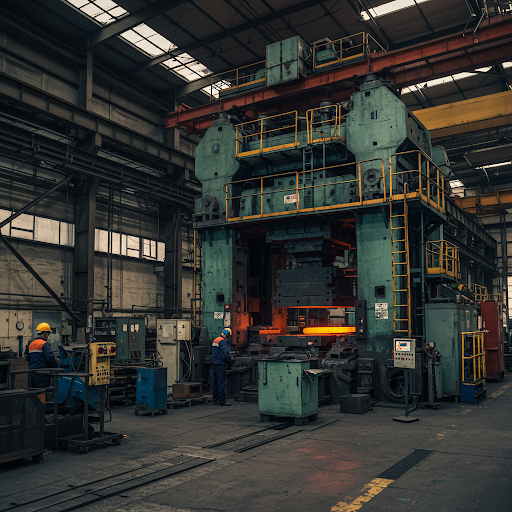Raw Material Handling
At Active Steel Forge, we recognize that the foundation of…

At Active Steel Forge, we recognize that the foundation of…

At Active Steel Forge, we offer advanced heating facilities designed…

Experience unmatched cutting precision and efficiency with our advanced cutting…

At Active Steel Forge, our advanced forging facilities offer unmatched…

At Active Steel Forge, we specialize in providing advanced heat…

Experience unmatched precision and superior quality with our advanced CNC…

6 min Read
Alloy steel forging is a crucial process in modern manufacturing, enabling the production of high-strength components used across various industries. By combining iron with elements such as chromium, nickel, molybdenum, and vanadium, alloy steel enhances mechanical properties like toughness, hardness, and wear resistance. This guide provides an in-depth overview of alloy steel forging, its applications, and its benefits.
Alloy steel forging involves shaping metal using compressive forces while taking advantage of alloying elements to enhance mechanical properties. The process includes heating, hammering, pressing, and rolling to create durable and precision-engineered components.
Alloy steel offers increased tensile strength, making it ideal for heavy-duty applications.
With elements like chromium and nickel, forged alloy steel resists rust, wear, and extreme environments.
Forging refines the grain structure, reducing defects and improving mechanical performance.
The forging process minimizes waste and enhances efficiency, reducing production costs over time.
Alloy steel forging is used in numerous industries due to its adaptability and performance benefits.
Alloy steel forged components are widely used across multiple industries:
While alloy steel forging offers numerous advantages, manufacturers must address certain challenges:
With advancements in metallurgical research and manufacturing technologies, alloy steel forging is evolving. Key trends include:
Alloy steel forging remains a cornerstone of modern manufacturing, offering unmatched strength, durability, and versatility. As industries demand higher performance and efficiency, advancements in forging technology continue to drive innovation. Whether in automotive, aerospace, or industrial machinery, alloy steel forging is a vital process shaping the future of engineering and production.
Get in touch with our experts today
